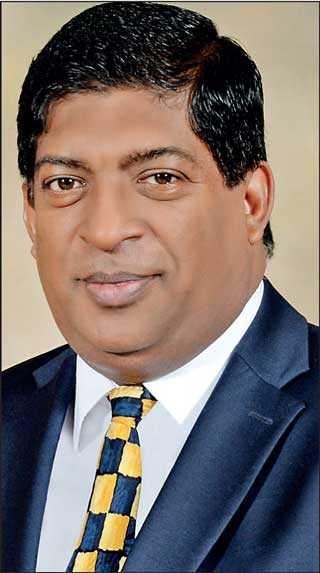Saturday Feb 14, 2026
Saturday Feb 14, 2026
Friday, 28 June 2019 00:00 - - {{hitsCtrl.values.hits}}
By Ashwin Hemmathagama – Our Lobby Correspondent
Power, Energy and Business Development Minister Ravi Karunanayake charged the Public Utilities Commission of Sri Lanka (PUCSL) yesterday in Parliament with unnecessary interference, insisting it prevents the Government from reducing the disparity between the generating costs and selling price of a unit of electricity for the public’s
 |
MP Ravi Karunanayake |
benefit.
“The battle between the PUCSL and the Ceylon Electricity Board (CEB) pressures the consumer. The PUCSL is not allowing us to reduce the generating cost and reduce the gap between the generating cost and the selling price. I want to buy a unit of electricity for Rs. 17/- or Rs. 18/-. But the generating cost remains Rs. 72/- due to old agreements. This is a crime,” said Minister Karunanayake, who charged the PUCSL for not allowing to change the electricity unit cost and cater to the increasing electricity demand.
On par with the CEB Act No. 20 of 2009, the pricing formula should be approved by the Cabinet of Ministers based on the Government policy and decisions taken to provide concessions. “It is the responsibility of the PUCSL to assess the price set for a unit of electricity. However, the Government has overall control over the electricity price. None of the proposals we submitted the PUCSL seeking approval to increase the electricity prices were rejected or approved,” he said. “The Public Utilities Commission of Sri Lanka (PUCSL) is not allowing the Ministry to take the necessary decisions to generate electricity at the lowest cost. If this is a cricket match, the PUCSL do balling, batting and the umpiring. Their job is to do recommendations. I have spoken to all 63 trade unions in the electricity sector. There are tenders which are pending for over four years. The PUCSL wants renewable energy and our engineers like coal power. This is another reason for the friction between the two organisations,” he added.
According to the Minister, Government bureaucracy takes at least on and half years to make a purchase following the tender procedures. “There is a method we have to follow at CEB to make a purchase. Initially, an order has to be placed. Then we obtain an estimate from the engineers after assessing the requirement for three to four months. Then the next step is to get approval to call for tenders. Then Cabinet approval should be obtained to call the tender. A technical committee has to be appointed along with a Cabinet-appointed negotiating committee. Then a tender committee is reappointed. An appeal board is also appointed thereafter. The decision goes to the Treasury and from there to the Cabinet. But if you follow these steps it takes at least one and half years. So, how can you solve today’s power requirement? When you are unable to address the current power requirement your problems get added up with another set of issues after one and half years. The private sector takes only three months to provide what takes one and half years for the CEB. After all these steps, we need to get the PUCSL approval, send them the Cabinet paper, then have to send them the Cabinet approval, and we have to get them for the signing of the agreement,” he explained.
Raising issues of trust over the Government efforts to acquire price-deciding authority from the PUCSL, the Janatha Vimukthi Peramuna (JVP) MP Anura Dissanayake held that it is necessary to have transparent pricing formula along with a proper mechanism.
“The CEB has purchased 155Mw in 2016, 180MW in 2017, 320MW in 2018, and 720MW in 2019 from the private sector. Accordingly, the loss incurred by the CEB has also escalated. The loss was Rs. 50 billion in 2018. The PUCSL has not approved the current power purchase from the private sector. The Ministry identifies the PUCSL as the sole burden that prevents it from purchasing electricity at a lesser price,” explained MP Dissanayake.